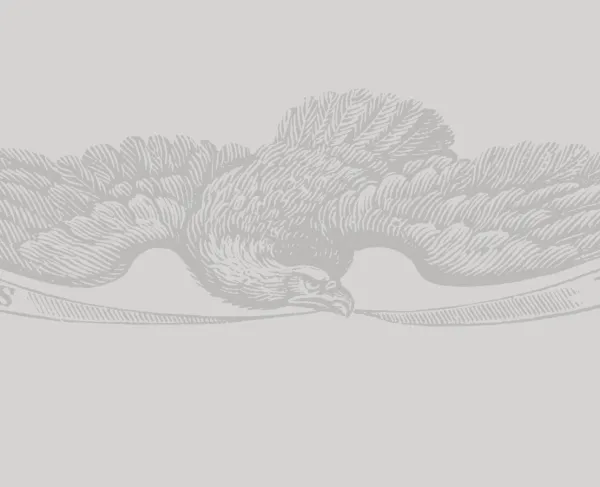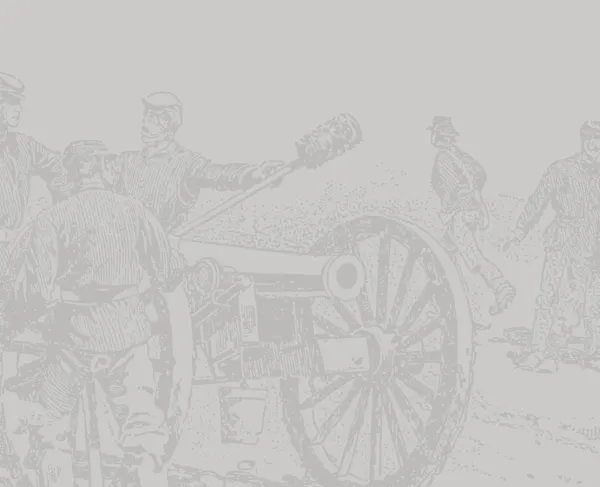Harpers Weekly - The Trent Affair

The Trent Question
January 2, 1862
It is well understood that Great Britain has demanded satisfaction for the Trent affair, in what terms and to what extent is not known at the time we write. It is inferred from the tone of the British press that the degree of satisfaction required is such as can not be granted without subjecting the United States to decided humiliation. And the question which has engrossed the minds of all loyal Americans during the past weeks has been whether we should submit to humiliation, or go to war again with England.
The answer to that question has not been unanimous. Some of our leading men and some of our journals are for war with England. If the British demands growing out of the Trent affair are such as can not be honorably complied with. Others again hold that in our present straits we can not afford to embark in a foreign war, and that it is better for us now to submit to the demands of England, whatever they may be and to trust to the future for opportunities of redress and vengeance. The latter appears to be entertained by those whose opinion is entitled to the greatest weight.
They argue that if the British navy and British credit were placed at the service of the rebels, it would be a work of superhuman difficulty to conquer them. We might, and we probably would, do infinite injury to British commerce. We might, if it were deemed worth while, overrun Canada, and add that wild and worthless region to our dominion. We might even stir up serious disturbances in Ireland. But all this would not compensate us for the permanent division of the Union and the erection of a hostile power on our soil. There is no question but the navy of Great Britain is at present so superior to ours that our blockade would be speedily broken, and thus the great object for whose accomplishment we have taken up arms would be placed beyond our reach. The war would be prolonged indefinitely, and our ultimate success would be rendered extremely doubtful.
In view of these considerations, and of the paramount importance of preserving the Union at all costs, a majority of leading men are understood to be of the opinion that the wisest course now is to comply with the demands of Great Britain whatever they may be, and to reserve to ourselves the right of reopening the controversy hereafter. That this is the view of the Administration we do not know. But there is reason to believe that Mr. Lincoln is as keenly alive as any one to the vital importance of maintaining our nationality at any sacrifice, and that he will not risk the main point for the sake of incidental controversies and side issues.
Of the conduct of Great Britain in this affair it requires unusual self-control to speak in measured language. It is as well known in England as here that the United States are engaged in a life struggle; that every man and every dollar are enlisted in a contest for the maintenance of our nationality; that there never has been a time since the conquest of our independence when this country was less fitted to embark in a foreign war. It requires some self-command to remark upon the conduct of a nation which chooses this moment to offer us the option of war or humiliation. History, we think, may vainly be searched for a parallel. Half a dozen time since 1814 occasions of war have arisen between this country and England, and have always been adjusted by diplomacy. It is only now, when our whole energies are engrossed in a domestic struggle, that England ventures to threaten us with war.
But a just providence rules , and to Him the issue may safely be intrusted. No wrong, in national affairs, ever goes unpunished. No such baseness as England has evinced in the course of the past nine months can escape retribution. A time will come--and in our day, too--when we shall call England to account for the unnatural enmity she has displayed toward the United States; for here base sympathy with traitors and pirates; and for the unspeakable cowardice she now evinces in trying to drive us to the wall in the hour of our most trying extremity. She should be the last Power in the world to make us her foe, for she has not a friend in the world. There is not a nation in Europe that would not exult over the ruin of England, for there is not one she has not insulted, outraged, or injured at some moment when they could not strike back. France, Russia, Spain, Germany, Italy-all will sympathize heart and soul with us when the time comes for our retribution, our vengeance. Millions of our poor creatures in India, and millions in China, will bless the day when we strike to the heart of the brutal oppressor, who for a century, has trampled feeling from this country, and the imminent danger of a collision, there is no good reason for supposing that the collision may not be avoided. A century, however, will not repair the mischief worked by the jealousy of England at this time. We may be ceremonious acquaintances, punctiliously careful upon every point of etiquette, but we shall not for many a generation be the friends that we ought to be now, and that so many believed we already were. Nor can any just judge declare that the reason is to be found in any tariff system that we may have adopted. No such purely superficial question explains so deep a difference. It is to be found in the eagerness and evident joy with which England hailed the prospect of our national ruin.
The Surrender of the Traitors
January 11, 1862
The traitors Mason, Slidell, Eustis, and Macfarland have been surrendered to the British Government. The country was prepared for the event, and gulps the bitter pill in silence. Mr. Secretary Seward has written a rather ingenious and extremely long justification of the act. It is to be hoped that it will so far help him abroad that British journalists will cease to represent him as the sworn foe of England and of peace.
Every body here knew a week ago that the traitors would be given up. Not because of any technical informalities in their arrest, but because it was infinitely better that we should endure a certain amount of humiliation at the hands of Great Britain than that we should jeopard the great cause of the Union by throwing the naval power of England into the rebel scale. The main point thus determined, it devolved upon Mr. Seward to decide the form and conditions of our compliance with the demand of Great Britain.
He might have said that the arrest of the traitors was right and proper, and their detention legal; but that, in the present circumstances, the country was not in a condition to go to war with England while the much more momentous question of the dissolution of the Union was being discussed in the battle-field, and therefore that Mason and Slidel were surrendered for the sake of peace.
Or he might have said that while the general spirit of international law justified the arrest, no perfectly parallel case had ever occurred, and therefore a doubt existed as to the complete lawfulness of Captain Wilkes's act; and that as peace with Great Britain was at the present juncture absolutely necessary to this country, he would give England the benefit of the doubt, and would release the prisoners to please her and to appease the British mob.
Or he might have argued the case from a legal point of view, setting in bold relief the arguments on the British side, and "casting behind him" the strong points of our case; and might thus have concluded , in the teeth of the expressed view of Secretary Welles, and the sentiment of nine-tenths of the people of the United States, that the arrest was unjustifiable, the British claim reasonable and our duty imperative.
Of these three courses the two first would have completely satisfied the people of the United States, and would not have lowered the fame of the Secretary. Whether the third will prove as satisfactory as the others to the great mass of our people is a question which it will take time to decide.
M. Thouvenel's dispatch darkly hinting that France would be found on the side of Great Britain in the event of hostilities with this country, confirms the opinion we have had occasion to express more than once--that we have no real friends on the other side of the ocean. The logic of the French Minister is not worth examination. His strong point is that the Trent was sailing from one neutral point to another; a perfectly immaterial circumstance, in view of the fact that she carried dispatches and officers of the rebel Government. Sir Wm. Scott always held that the immediate point of departure and the direct destination were immaterial if the goods contraband of war actually came from belligerent ports, or were ultimately destined for belligerent uses. The practical lesson to be learned from M. Thouvenel's essay, is that France will not be on our side in the event of trouble between England and ourselves. Mr. Seward's smooth answer must not delude any one into imagining that our Government places the least reliance upon the hereditary friendship existing between this country and France; but that it relies, as it should do, on our own strength for the regulation of our own affairs.
It is hoped, at all events, that this extremely disagreeable business will secure the end proposed by so much humiliation-namely, that we may be suffered to conclude the job of crushing out the rebellion without further foreign interference. At the present time a piratical steamer- the Nashville- belonging to the rebels, half filled with the plunder of the American ship Harvey Birch, which she burned within sight of the British coast, is refitting in the harbor of Southampton: the British steamer Gladiator, filled with arms and munitions for the rebels, is lying in the British port of Nassau, and has been supplied with coals to enable her to run into Savannah or some other rebel port, while the authorities of Nassau refuse coals to our gun-boat, the Flambeau, which is watching for her: other British steamers are notoriously fitting out in England with like cargoes for the rebels; and British officials all over, from the Governor of Canada to the Consul at Havana, give palpable evidence of their sympathy with the rebels. It is to be hoped that this measure of unfriendliness and injury may suffice. We do not trust that the British may be satisfied with equipping pirates to prey upon our commerce, and receiving them with their plunder; with converting British ports into harbors of safety for our enemy's ships, and refusing to sell coal to our vessels; with permitting their officials to receive with honor and respect the emissaries of the rebels, and to visit with their high displeasure any British subject who shows a friendly spirit toward this country. As we have treaties of alliance with England, and the members of the British Government are constantly assuring us of their high regard for us, perhaps these injuries may slake their dislike for the United States and for democracy. It is to be hoped, after the surrender of Mason and Slidell, that they will.





